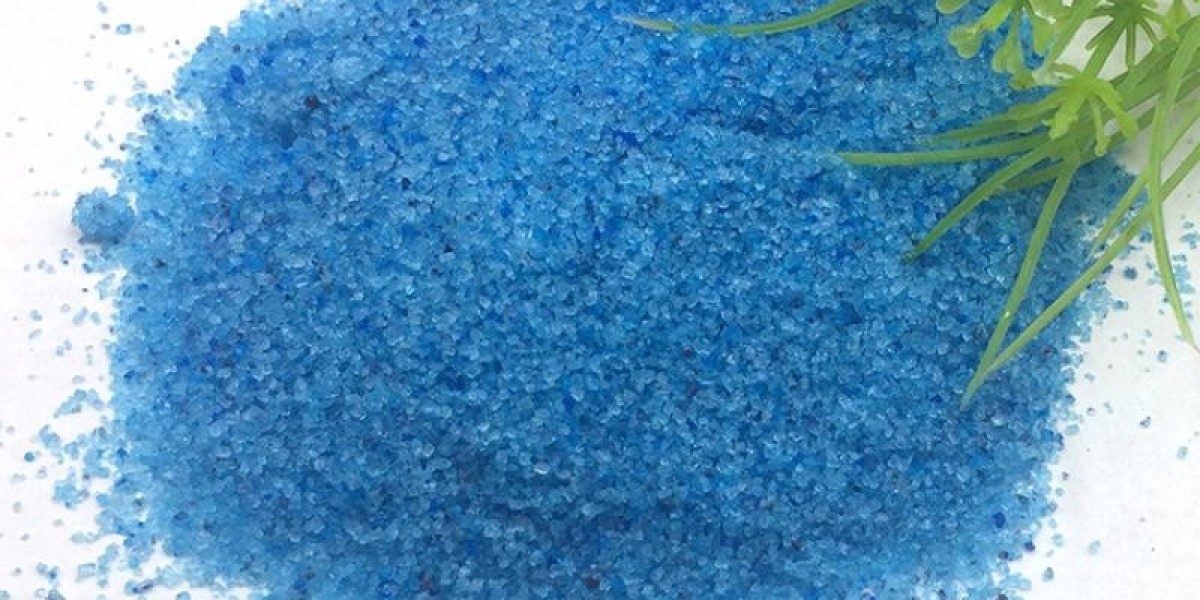Water Soluble Fertilizer Manufacturers Overview:
Water-soluble fertilizers have gained significant traction in modern agriculture due to their efficiency, ease of application, and environmental benefits. As demand for high-quality crops grows, the role of water-soluble fertilizers becomes increasingly pivotal. Behind this agricultural revolution are the manufacturers who tirelessly innovate to produce superior fertilizers while embracing sustainability. This article delves into the world of water-soluble fertilizer manufacturers, their innovations, and their commitment to sustainable practices.
The Rise of Water-Soluble Fertilizers:
Water-soluble fertilizers are compounds that dissolve completely in water, providing essential nutrients to plants in a readily available form. Unlike traditional granular fertilizers, water-soluble fertilizers offer precise nutrient delivery, ensuring optimal plant uptake and minimal nutrient loss. This precise application has made them indispensable in modern agriculture, particularly in hydroponic systems, fertigation, and foliar feeding.
Key Players in Water-Soluble Fertilizer Manufacturing:
Several prominent manufacturers lead the charge in producing water-soluble fertilizers, each renowned for its quality, innovation, and commitment to sustainability. Companies such as Yara International, Israel Chemicals Ltd. (ICL), Haifa Group, The Mosaic Company, and K+S Group are among the industry leaders.
- Yara International: Yara International, a Norwegian company, stands as a global leader in water-soluble fertilizer production. Leveraging cutting-edge technology and research, Yara produces a wide range of water-soluble fertilizers tailored to various crop needs. With a focus on sustainable agriculture, Yara emphasizes resource efficiency and environmental stewardship in its manufacturing processes.
- Israel Chemicals Ltd. (ICL): ICL, based in Israel, is another prominent player in the water-soluble fertilizer market. Known for its innovative solutions, ICL develops fertilizers enriched with micronutrients and specialty additives to enhance plant growth and yield. ICL places a strong emphasis on research and development, continually striving to improve the efficacy and environmental sustainability of its products.
- Haifa Group: Haifa Group, headquartered in Israel, specializes in water-soluble fertilizers and specialty plant nutrition products. Renowned for its high-quality fertilizers, Haifa Group emphasizes precision agriculture and tailor-made solutions for growers worldwide. The company is committed to sustainability, promoting responsible use of resources and eco-friendly manufacturing practices.
- The Mosaic Company: Based in the United States, The Mosaic Company is a leading producer of phosphate and potash fertilizers, including water-soluble formulations. With a focus on innovation and technology, Mosaic develops advanced fertilizers to address the evolving needs of modern agriculture. Sustainability is integral to Mosaic's operations, with initiatives aimed at reducing environmental impact and promoting soil health.
- K+S Group: K+S Group, headquartered in Germany, is a global supplier of mineral fertilizers, including water-soluble formulations. Known for its expertise in potash and magnesium products, K+S Group offers a diverse portfolio of fertilizers optimized for different soil and crop requirements. The company prioritizes sustainability throughout its value chain, from raw material extraction to product distribution.
Browse More Information:
Innovations in Water-Soluble Fertilizer Manufacturing:
Manufacturers of water-soluble fertilizers continually push the boundaries of innovation to enhance product efficacy, sustainability, and user convenience. Key innovations in this field include:
- Enhanced Nutrient Formulations: Manufacturers are developing fertilizers enriched with micronutrients, bio-stimulants, and chelating agents to improve nutrient uptake and plant health.
- Controlled-Release Technologies: Advanced formulations incorporate controlled-release mechanisms to deliver nutrients gradually, reducing leaching and maximizing nutrient utilization by plants.
- Sustainable Ingredients: Manufacturers are increasingly utilizing sustainable raw materials and eco-friendly production methods to minimize environmental impact and promote circularity in agriculture.
- Precision Delivery Systems: Innovations in fertigation and irrigation technologies enable precise application of water-soluble fertilizers, optimizing nutrient distribution and minimizing waste.
- Digital Solutions: Manufacturers are integrating digital platforms and precision agriculture tools to provide growers with customized fertilizer recommendations based on soil and crop data, enhancing efficiency and productivity.
Sustainability Initiatives:
Water-soluble fertilizer manufacturers are actively pursuing sustainability initiatives to reduce their environmental footprint and promote sustainable agriculture. These initiatives include:
- Energy-Efficient Manufacturing: Manufacturers invest in energy-efficient technologies and renewable energy sources to minimize greenhouse gas emissions and energy consumption during fertilizer production.
- Waste Reduction: Companies implement waste reduction strategies and recycling programs to minimize waste generation and maximize resource efficiency in manufacturing processes.
- Responsible Sourcing: Manufacturers prioritize responsible sourcing of raw materials, ensuring ethical practices and environmental stewardship throughout the supply chain.
- Carbon Neutrality Goals: Some manufacturers set ambitious carbon neutrality goals, striving to offset carbon emissions through reforestation, carbon capture, and other carbon sequestration initiatives.
- Community Engagement: Manufacturers engage with local communities and stakeholders to foster sustainable development, support smallholder farmers, and promote environmental conservation initiatives.
Conclusion:
Water-soluble fertilizer manufacturers play a crucial role in advancing modern agriculture through innovation and sustainability. By producing high-quality fertilizers and embracing eco-friendly practices, these companies contribute to improving crop yields, enhancing food security, and safeguarding the environment for future generations. As the demand for sustainable agricultural solutions continues to grow, water-soluble fertilizer manufacturers will undoubtedly remain at the forefront of this transformative journey toward a more resilient and sustainable food system.


